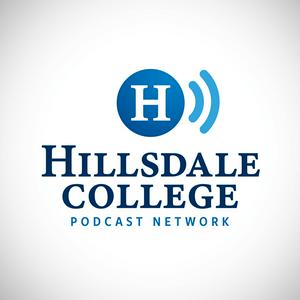On this episode of The Hillsdale College Online Courses Podcast, Jeremiah and Juan discuss executive authority and secession before introducing Kevin Portteus.
The United States Constitution was designed to secure the natural rights proclaimed in the Declaration of Independence. Signed by Constitutional Convention delegates on September 17, 1787—Constitution Day—it was ratified by the American people and remains the most enduring and successful constitution in history.
In this twelve-lecture course, students will examine the political theory of the American Founding and subsequent challenges to that theory throughout American history. Topics covered in this course include: the natural rights theory of the Founding, the meaning of the Declaration and the Constitution, the crisis of the Civil War, the Progressive rejection of the Founding, and the nature and form of modern liberalism.
The South’s justification for secession was based on an erroneous reading of the Constitution. Whereas the South claimed a legal right to secede, Lincoln opposed what he called an illegal insurrection and sought to secure a “new birth of freedom” in America.
See omnystudio.com/listener for privacy information.


